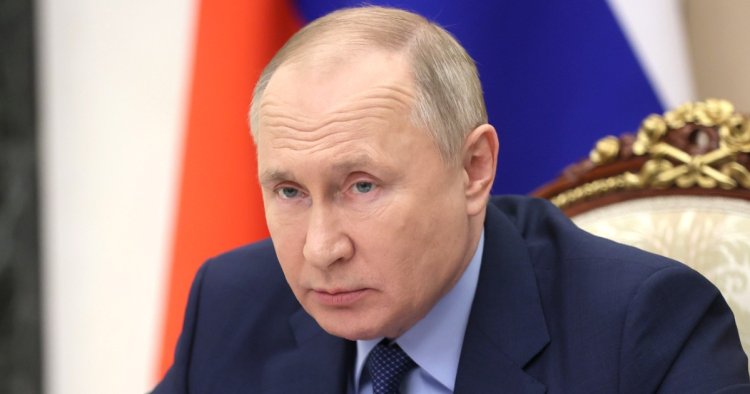Russian President Vladimir Putin, facing challenges in the Ukraine conflict, has shifted his narrative to maintain support among his people, claiming that the greatest enemies of Russia are not in Eastern Europe but rather in the West.
Initially, Putin claimed the invasion was to “de-nazify” Ukraine. As the conflict extended, he recast it as a “holy crusade” against the “forces of Satan.” Now, approaching the third year of the war, Putin presents a new angle.
“Ukraine itself is not our enemy,” Putin said. “Those who want to destroy Russian statehood and to achieve a strategic defeat of Russia on the battlefield are mainly in the West.”
Putin’s rhetoric suggests a long-term strategy for Russian military engagement. The Institute for the Study of War (ISW) interprets his statements as preparing for a permanent military build-up against the West.
“Putin’s statements likely suggest that he is preparing a long-term justification to keep forces mobilized and engaged in combat for the perpetual defense of Russia’s sovereignty against the West,” the ISW stated.
Putin reassured the wounded during a hospital visit, “Though it has been their (the West’s) goal to deal with Russia from time immemorial, we will deal with them faster.” He emphasized Russian unity and the importance of the military’s role.
Andrei Kolesnikov, a senior fellow at Carnegie Endowment, views the war as creating a new political reality for the Kremlin, prompting a revamped ideological foundation for Putin’s rule. Kolesnikov argues that Putin’s government requires self-justification, shifting to “traditional spiritual and moral values.”
A declassified U.S. intelligence report estimates Russian casualties since February 2022 to be about 315,000. Ukrainian losses remain classified but are believed to be high. “Such high casualties for small territorial gains are likely prompting Putin to present a strong and ideological justification to continue the prolonged war of choice on which he has launched Russia,” ISW analysts noted.
Kolesnikov discusses the Kremlin’s reliance on implausible claims to support its ideology. He mentions accusations by Nikolai Patruschev, a Putin associate, about “Anglo-Saxon elites” and their alleged plans involving Siberia and the Yellowstone Supervolcano. Other claims include territorial ambitions by Poland, Finland and others towards Russian regions.
Putin’s narrative aims to justify the war and motivate Russian citizens. Former New Zealand diplomat Ian Hill notes Putin’s confidence, supported by allies and domestic control. Despite the war’s unpopularity in Russia, there’s no immediate threat to the regime’s power.
Putin announced the recruitment of an extra 486,000 men for the army in 2023, preparing for a potential offensive in 2024.
Scroll down to leave a comment and share your thoughts.


Leave a Comment